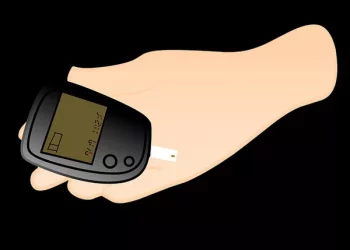New research suggests that wearable mobile health technologies could enhance exercise adherence in individuals with Type 2 Diabetes (T2D), potentially helping them manage their condition more effectively. A recent study involving participants from Canada and the UK has shown promising results regarding the role of smartwatches paired with health apps in supporting physical activity.
The study, known as MOTIVATE-T2D, focused on individuals recently diagnosed with T2D. Participants engaged in a home-based physical activity program, with some using wearable devices. These devices, which included a smartwatch with a 3D accelerometer and optical heart rate monitor, synced with an online coaching platform. The study observed a higher likelihood of participants initiating and maintaining regular exercise when supported by wearable technology. Of the 125 participants enrolled, 82% remained engaged throughout the 12-month study period.
The findings, published in BMJ Open on March 27, highlight several clinical benefits, such as improvements in blood sugar levels, systolic blood pressure, and cholesterol. The study suggests that wearable technologies, offering real-time biofeedback and personalized data, could effectively encourage newly diagnosed T2D patients to stick with their exercise regimens, contributing to better long-term health outcomes.
Dr. Katie Hesketh, co-author of the study from the University of Birmingham, emphasized the promise of these technologies, stating, “Using biometrics from wearable devices shows great potential in motivating individuals with T2D to adhere to a home-delivered, personalized exercise program. This could offer significant health benefits, including lower cholesterol and improved overall quality of life.”
The MOTIVATE-T2D program involved participants gradually increasing their exercise intensity to reach a goal of 150 minutes of moderate-to-vigorous physical activity per week. They were supported by virtual exercise specialist-led behavioral counseling. The program included a mix of cardio and strength workouts that participants could perform at home, making it easier to integrate exercise into daily life.
The trial targeted individuals aged 40-75 who had been diagnosed with T2D within the past 5-24 months. Participants were managing their condition through lifestyle changes or Metformin. The research team hopes these findings will pave the way for a larger-scale randomized controlled trial to explore the clinical and cost-effectiveness of wearable technology interventions for T2D management.
Related topics:
Automated Insulin Delivery Reduces HbA1c in Type 2 Diabetes without Increasing Hypoglycemia
Endocrine Society Urges Restoration of Vital Diabetes Prevention Program
Continuous Glucose Monitors Enhance Traffic Safety for Diabetic Drivers
























